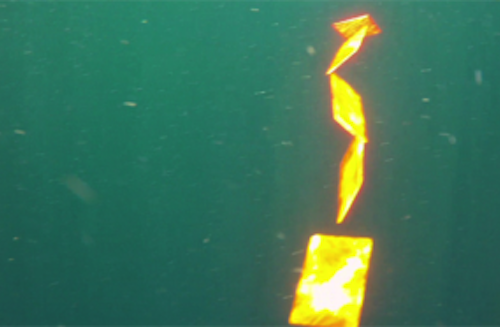
One of the few dreams I remember: a recurring one. In it, I am burying a body below an enormous house. I pull up floorboards in the basement, dig up enough dirt for a shallow grave, then toss the body in. My greatest sense in the dream is that no one will discover what I’ve done—what I presume to be the murder of a deserving victim. I am in the clear. Yet still, something lingers, persists, a kind of knocking.
To say that one has seen a ghost is not necessarily to experience a haunting. To be haunted is to refuse, be it actively with one’s own permission or without. In this latter case when one is haunted without one’s own permission, I think of it as a compelled haunting.
This is the dream of a melancholic. The lost object is so shiny, the attraction undeniable [impossibility in severing attachment]. We must become it. Must hold it so close we take it inside of ourselves. Thus, the knocking in the throat like a second heart.
All the poetry I’ve ever written is compelled by a single series of events. The attempt to write them, in all their fractured and fracturing glory, is believe it or not, an act of forgetting. And, inside a narrow silver tube that runs the core of me from the top of my head to my left most toe is where I hold the loss. The poem, then, is in a perpetual state of collapse in its refusal to be unhaunted. The silver tube of loss gets stuffed and re-stuffed, extractions from memory into text into—
Impossibility in further deciphering the silver tube, its purpose, how it’s a place held within and apart…
What else can be put into the hole [self]?
It's not easy work, lifting the shovel and stuffing the hole, but it must be done. This labor produces in me something akin to exaltation or joy. This is what I mean when I say sadomasochism. If language is caught between the thing or experience or the self and the text it howls into the mouth of the chasm until it is defeated and spent, it staggers around until it has knocked itself cold. Perhaps this is what produces joy, this working toward.
Conceptual artist, Torkwase Dyson (see full interview here), puts it this way when talking about her new project “Black Light,” which involves the physical exertion of scuba diving under oil rigs in the Gulf of Mexico:
In this work I experience toil, intensity, pressure, exertion, danger, (things I associate with labor)[…] In the Gulf tides are really high, diving is difficult, and the oil rigs I'm documenting are like bad monsters. Ironically, bad monster with pretty feet because of the coral reef that forms on the surfaces. When diving I also feel fear, resentment, exhaustion, disgust and physically ill. When I'm done with the actual dive and documentation then joy/happiness peaks in for a moment to tease me. For a moment I feel some liberation, some good altitude, some good love […] this small mean gift […] So joy in labor is only related to the push through of anxiety, fears, and physical illness. It hangs over me only for moments until I decide I'm going to go under water again. Joy in my work is some cruel condescending prize I get. I'd rather just mild instances of relief. But I don't have a choice.
I do not expect to be rescued from my recurring dream. The moments of liberation—of good love—emerge from a tension that approximates conflict. This, to me, is the act of writing.
Poet and activist Dawn Lundy Martin earned a BA at the University of Connecticut, an MA at San Francisco...
Read Full Biography

